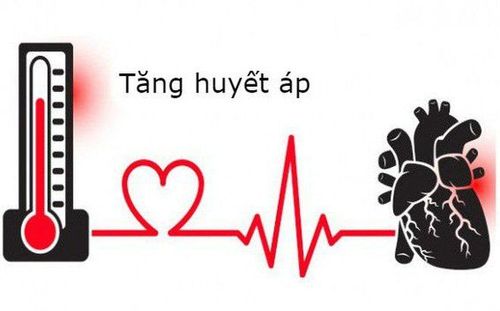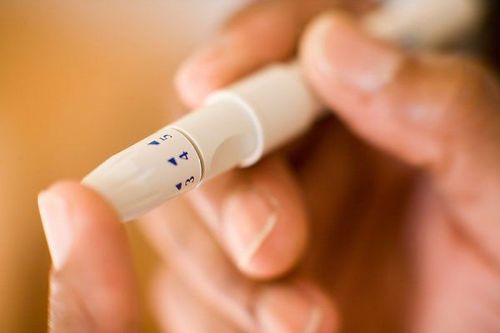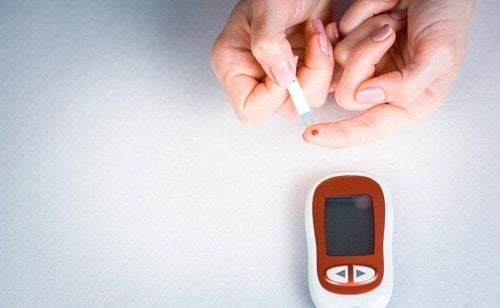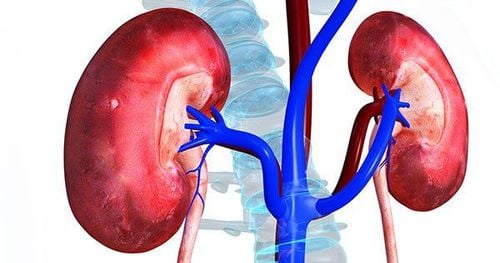This is an automatically translated article.
Diabetic nephropathy is one of the dangerous complications that diabetics can have. This complication can appear at the time of diagnosis of type 2 diabetes or 10 years after the onset of the disease. Without proper and timely treatment, it can lead to kidney failure, diabetes, kidney fibrosis, life-threatening at any time.
1. What are the complications of diabetes?
People with diabetes, if not properly treated, can lead to many dangerous complications. So what are the complications of diabetes, when do complications occur?...
Regarding this, doctors say that chronic long-term glucose elevation in diabetic patients will cause the following problems. disorders of carbohydrate, protein, lipide metabolism and damage in many different organs (heart, kidneys, eyes, nerves...).
Complications of diabetes include:
1.1 Cardiovascular complications in diabetics Like diabetic kidney failure, cardiovascular complications are one of the leading complications in diabetics. The reason for cardiovascular complications is because the patient has a long-term increase in blood sugar, causing coronary artery disease, easily leading to stroke or myocardial infarction. In particular, high blood glucose, high blood pressure, high cholesterol and other risk factors also increase cardiovascular complications in patients with diabetes.

Biến chứng tim mạch là một trong những biến chứng hàng đầu ở bệnh nhân đái tháo đường
1.2 Complications of kidney failure in diabetic patients Diabetic kidney failure complications will cause damage to small blood vessels in the kidneys leading to improper functioning, poor functioning or kidney failure.
1.3 Diabetic Neuropathy When you have type 2 diabetes, you can experience nerve damage throughout your body due to the effects of high blood pressure and blood glucose. This diabetes complication is often accompanied by digestive problems, erectile dysfunction and a number of other functions in the body.
1.4 Complications of retinopathy in diabetics According to the survey, most diabetics will experience complications of some kind of eye disease, be it vision loss or blindness, the main cause is due to persistently high blood glucose levels along with increased blood pressure. However, this complication can be controlled with regular eye exams.
2. Why does diabetes lead to kidney failure?
“Why does diabetes lead to kidney failure?” This is a question asked by many diabetic patients. Diabetic nephropathy, also known as Kimmelstiel Wilson syndrome, is a condition in which the kidney function is severely impaired due to diabetes mellitus.
The pathogenesis of this complication of diabetic kidney failure is quite complicated, normally, blood will flow into the kidney through the renal arteries with numerous tiny blood vessels and concentrate in small tufts called glomeruli. . However, in people with diabetes, when blood sugar is elevated for a long time, it will produce more oxidants that damage the capillaries in the glomeruli. At the same time, blood sugar is too high, surpassing the blood sugar threshold of the kidney, causing this organ to work too hard, after a long time, it will make the pores bigger, causing protein to leak out, causing affect kidney function. This condition, due to not being treated in time, causes the kidneys to gradually become fibrosis and completely lose their functions, the patient is now forced to use dialysis or a kidney transplant to treat and prolong life.
3. Signs to recognize kidney failure complications in diabetics
Complications of diabetic kidney failure in the early stages are often very faint, in some cases patients will see increased blood pressure, body fatigue or slight swelling of the feet. Most patients are only detected after urinalysis for microalbuminuria (microalbumin) or abdominal ultrasound shows enlarged kidneys. When complications are severe, it can cause symptoms such as:
Effervescent urine High blood pressure

Khi biến chứng nặng huyết áp có thể tăng cao
Urinating many times in the night Itching, pale skin, tired people Swollen feet, legs Swollen face. Frequent low blood sugar, nausea, loss of appetite. Early detection of kidney failure complications in diabetics is extremely important, helping to prevent the serious problems that it causes to the patient's health.
Since November 2018, Vinmec Times City International Hospital has applied the new test technique L-FABP to allow early diagnosis of kidney damage levels and identify acute tubular microcirculatory disorders kidney. This is a new biomarker that reflects the serious condition of the convoluted tubule before there are signs on the tissue so that doctors can promptly treat it. With this technique, patients only need to collect urine for testing at any time of the day and will give accurate results after 30 minutes. Up to now, Vinmec is proud to be the first address in Vietnam to apply this testing technique according to Japanese technology on a modern automatic AU680 testing machine.
Please dial HOTLINE for more information or register for an appointment HERE. Download MyVinmec app to make appointments faster and to manage your bookings easily.













